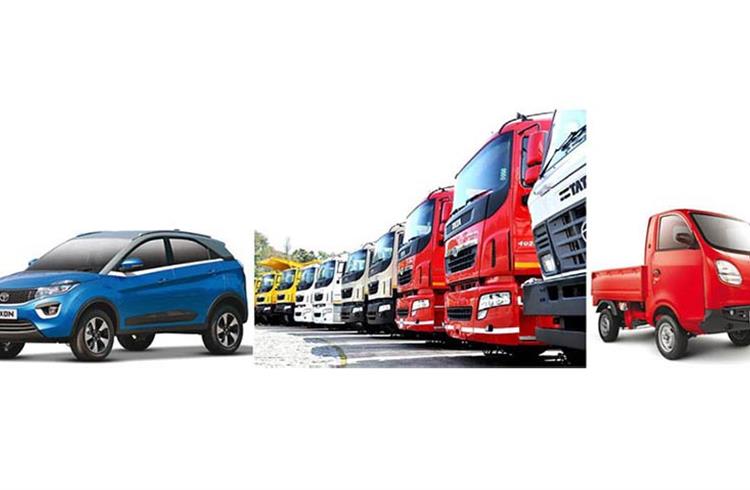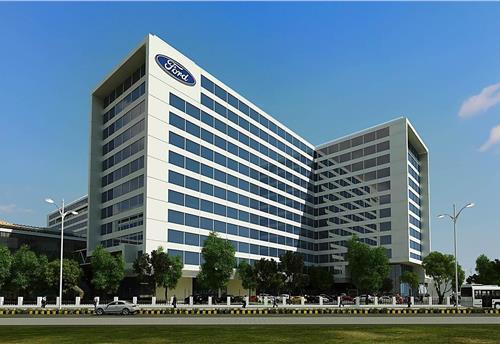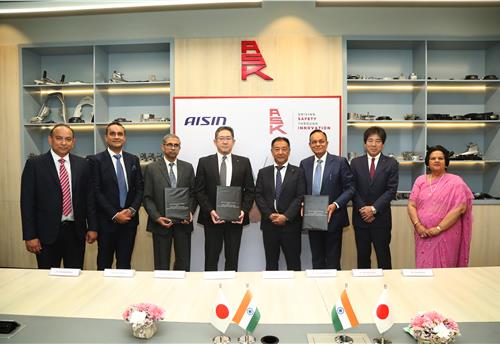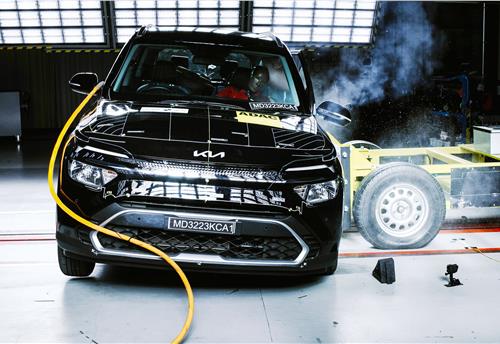Tata Motors firms up business turnaround plan
Even as chairman N Chandrasekaran says turning around the domestic business is "the need of the hour", MD Guenter Butschek is bullish on driving growth led by a four-pronged strategy along with plans to advance launches of some new products.
Tata Motors, it seems, is set to do all it takes to bring about growth. Chairman N Chandrasekaran has said turning around the company's domestic business is "the need of the hour" as it has suffered from delays in new product launches, lack of adequate response to competition and an unsustainable cost structure.
Addressing shareholders in the company’s annual report 2016-17, he said Tata Motors' standalone net revenue increased by 3.7 percent to Rs 44,777 crore for the 12 months ended March 31, 2017 but standalone loss before tax for the year fell to Rs 2,421 crore, compared with Rs 67 crore in the prior year.
"In the domestic business segment, business turnaround is the need of the hour and the management is working with renewed focus and energy to improve our market share, reduce our cost base, streamline the supply chain and ensure launch of products on time to delight our customers," he said, as per a PTI report.
The company’s market share in commercial vehicles (CV) segment has fallen to 44.4 percent from a high of 59.4 percent in FY2011-12, while market share for passenger vehicles (PV) declined to 5.2 percent from 13.1 percent in the same period, he added.
"Overall, delays in new product launches as well as lack of adequate responsiveness to the competitive environment and an unsustainable cost structure have contributed to this performance," Chandrasekaran said.
Consolidated net revenues declined by 1.2 percent to Rs 2,69,850 crore for the 12 months ended March 31, 2017 and consolidated profit before tax for the year fell sharply to Rs 9,315 crore, compared with Rs 14,126 crore in the prior year, he added.
Chandrasekaran, however, expressed confidence that a series of actions taken by the management team would succeed and show an improved performance in both the commercial vehicle and passenger vehicle segments in India and deliver better financial results.
Finalising a business turnaround plan
Expressing similar views, Tata Motors’ managing director Guenter Butschek said: "Our immediate priority now is on execution – to address the top concerns of supply constraints, to advance the launch time of some of our new products."
He added, "In full alignment with the Board, we have finalised a business turnaround plan through which we take upon ourselves to deliver a robust bottom-line improvement in FY2017-18."
Butschek said one of the most important initiatives in 2016-17 was the Organisational Effectiveness (OE) exercise, with the objective of bringing "the much-needed empowerment and accountability within the business unit, strong functional oversight based on the key principles of speed, simplicity and agility".
"Due to its magnitude and complexity, the transition of the new management structure with effect from April 1, 2017 faced some challenges, which in the meanwhile is getting addressed on a case to case basis," he added.
While challenges such as demonetisation and transition to BS IV affected business, Butschek also admitted that Tata Motors did not adequately react to the changing environment.
Due to the unexpected and unprecedented changes in the market, he said, "we faced a rather hostile business cycle with headwinds in the form of demonetisation, the famous Supreme Court ruling on BS IV transition."
As a matter of fact, Butschek further said, "it was not only the market volatility which affected our performance, but mainly our sluggishness in reading the market in time, as we were effectively late to respond."
Tata Motors ImpACT (Improvement by Action) projects with full-time senior leaders and dedicated teams having ownership at executive committee level helped the company focus on four areas – intense top-line focus, cost optimisation, customer centricity and structural improvements in processes, he said.
"These projects have started to pay back and have created a great change of momentum in the entire organisation. We have built a very strong savings potential with positive effects in FY2017-18 and the years to come," Butschek concluded.
Also read: Tata Nexon guns for a big slice of India's compact SUV market
RELATED ARTICLES
Ford to build more EV software capability at Chennai tech hub
Ford Business Solutions India, which currently employs 12,000 personnel set to add 3,000 more; Ford, which is known to b...
ASK Automotive to set up JV with Aisin to sell aftermarket parts for cars
Ask Automotive will have 51% of the equity of the joint venture to be set up with Aisin Asia (Thailand) Company and Aisi...
Kia Carens gets 3-star Global NCAP rating in fresh tests
The Carens MPV, which was tested twice under the new protocol, scored zero stars for adult occupancy in the first test.





 By Autocar Pro News Desk
By Autocar Pro News Desk
 31 Jul 2017
31 Jul 2017
 3358 Views
3358 Views









